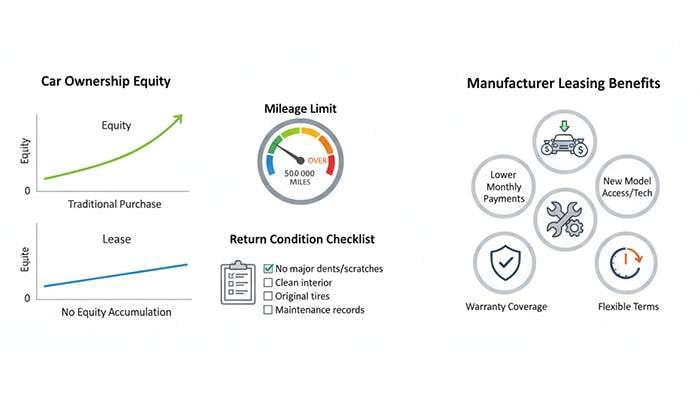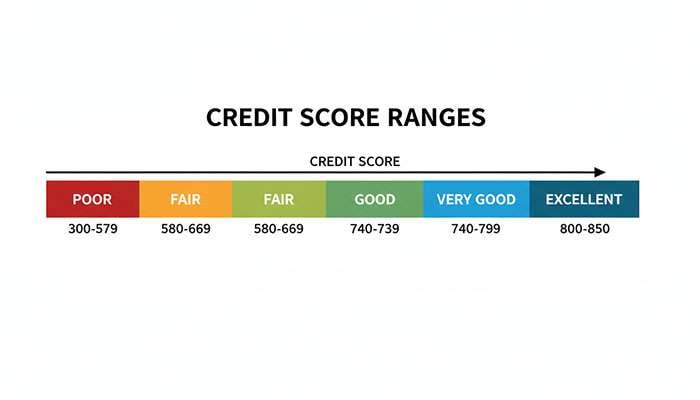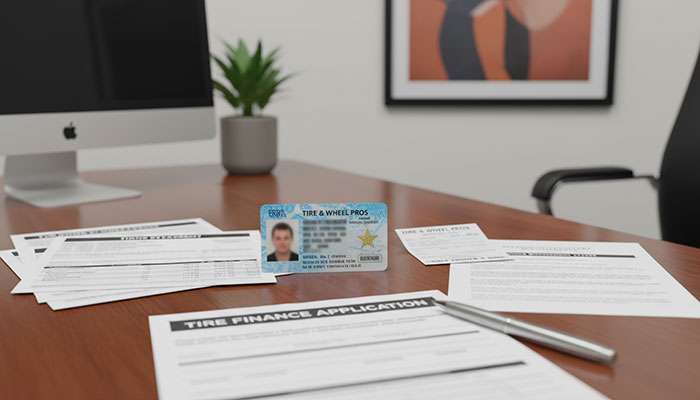
Tire and rim replacement costs have skyrocketed - what once cost under $1,000 a decade ago now easily runs thousands of dollars. What credit score is needed for tire financing becomes a critical question when facing this substantial expense.
We have good news: financing options exist for nearly every credit situation. Credit scores in the 600-630 range open doors to multiple programs, while companies like PayTomorrow provide solutions with approval amounts reaching $5,000 for those rebuilding their credit. Tire financing for bad credit has expanded significantly, with providers offering approvals for down payments as low as $0 to $49 and nationwide tire delivery.
The easiest tire credit to get often comes through programs using soft credit checks that protect your existing credit score. These financing solutions work through affordable repayment terms designed to get you back on the road quickly, welcoming customers with good to average credit as well as those with emerging or rebuilding credit histories.
We'll walk you through everything about tire financing - from credit requirements to application steps - helping you select the best option for your specific situation and budget.
Tire financing converts what could be a major one-time expense into manageable monthly payments, making quality tire upgrades possible without draining your savings. You get tires immediately while spreading payments over time, typically ranging from 3 to 60 months.
Tire financing works as a payment solution connecting immediate safety needs with your available cash flow. Most financing options approve amounts from $50 to over $5,000, providing instant access to necessary tire replacements or upgrades. The application process stays remarkably simple – completed online within minutes, with decisions received within seconds.
Financing structures fall into two main categories: traditional financing and lease-to-own arrangements. Traditional financing gives you lender approval for specific amounts based on your credit profile, with fixed monthly payments and interest rates from 0% to 36% APR. Lease-to-own models let you use tires while making regular ownership payments, usually matching your pay periods (weekly, biweekly, or monthly).
Specialized programs make tire financing accessible for those with less-than-perfect credit histories. "No Credit Needed" lease-to-own programs target customers with bad credit or no credit history. These programs typically require basic information including:
Social Security number or ITIN
Credit or debit card
Checking account and routing number
Government-issued photo ID
Many providers perform only "soft" credit inquiries that won't impact your credit score. Companies like Snap Finance, Progressive Leasing, and Acima focus on helping customers with credit challenges, often providing instant approvals without hard credit checks. With minimal down payments (sometimes as low as $0 to $49), these programs make necessary tire purchases possible despite previous credit issues.
Understanding key terminology helps you select the right financing option:
Lease-to-Own/Rent-to-Own: These terms describe arrangements where financing companies purchase tires from retailers and maintain ownership until payment completion. You lease the tires while working toward ownership.
APR (Annual Percentage Rate): This represents yearly borrowing costs including interest and fees, with tire financing APRs ranging from 0% (promotional offers) to 36% depending on creditworthiness.
Early Purchase Option (EBO): Most lease-to-own plans offer opportunities to purchase outright during specific periods (usually within 90-101 days) at lower total costs than completing all scheduled payments.
Equal Payment Plans: Some retailers like Les Schwab offer consistent monthly payments calculated at 5% of your highest balance. For example, financing $500 would mean $25 monthly payments until paid in full.
90-Days Same as Cash: This option allows you to pay the balance in full within 90 days with no interest charges.
Payment structures vary based on your ending monthly balance. A $400 tire purchase might initially require a $50 monthly payment, but as the balance decreases below $250, the minimum payment would drop to $25.

When you need new tires but want to protect your budget, multiple financing paths can get you back on the road. Each option serves different financial situations and credit profiles, ensuring solutions exist regardless of your credit history.
These two financing approaches work differently to meet various customer needs.
Lease-to-own arrangements allow you to get tires immediately while a financing company maintains ownership until you complete all payments. You make regular payments toward eventual ownership while using the tires right away. These programs focus on your current income rather than credit history, making approval easier for those with credit challenges.
Installment loans provide traditional structured financing with fixed monthly payments over set periods. Companies like Affirm partner with tire retailers to offer payment plans from 3 to 48 months, with interest rates from 0% to 29.99% APR based on your credit quality. Higher credit scores typically unlock better terms and rates.
Many tire retailers offer both options. Goodyear provides traditional financing with up to 6-month terms on purchases of $250 or more through their credit card. Abunda offers both lease-to-own and buy-now-pay-later plans regardless of credit status.
Rent-to-own programs provide the most accessible financing for customers with credit challenges. Programs like Snap Finance, Progressive Leasing, and Acima need minimal documentation:
Active checking account (minimum 3 months)
Monthly income of at least $1,000
Valid government-issued photo ID
Social Security number or ITIN
These programs allow purchases from $300 to $5,000. Your lease continues until you own the tires, with flexible payment options matching your pay schedule. Most programs include 90-day early purchase options to reduce total cost.
Retailers offer their own financing solutions with varied benefits. The Goodyear Credit Card provides special financing on purchases over $250, with terms from 6 to 12 months at 0% interest during promotional periods. General-purpose credit cards also work for tire purchases, potentially earning rewards or cashback.
Store-specific cards through major retailers give exclusive promotions and deferred interest periods. Belle Tire's credit program provides financing for purchases exceeding $199, with monthly payments based on purchase amount. Discount Tire partners with Synchrony for special financing terms.
Be mindful of higher interest rates - typically 25-30% APR - that apply if balances aren't paid within promotional windows. Store cards work best for customers who can clear balances during interest-free periods.
Buy now, pay later (BNPL) platforms like Affirm and Klarna split purchases into interest-free installments, typically over four payments. These services perform soft credit checks and provide instant approval decisions.
Many online tire retailers accept these payment methods. Affirm partners with major sellers and offers extended payment plans up to 48 months, though longer terms may carry interest charges. For BNPL, keep these points in mind:
Approval amounts vary based on purchase history and creditworthiness
Some services report to credit bureaus, affecting your score
Missing payments can result in late fees and potential credit damage
Multiple BNPL accounts can make financial tracking challenging
These services work best for customers needing short-term payment flexibility who can commit to the payment schedule. While convenient, they require careful management to avoid accumulating multiple payment obligations.

Credit score requirements for tire financing vary widely based on the financing type you choose. Your credit profile determines which options work best for your situation.
FICO scores range from 300 to 850, with these general categories:
Excellent (750+): Access to best rates and terms
Good (700-749): Qualify for most programs with favorable conditions
Fair (650-699): May face higher interest rates
Poor (600-649): Limited traditional options available
Very Poor (below 600): Need alternative financing programs
Lease-to-own programs often focus on factors beyond credit scores. Companies like Snap Finance consider income, employment history, and banking activity. This broader evaluation helps many customers access financing regardless of credit score.
Different financing options establish distinct credit thresholds:
Traditional Installment Loans: These typically require credit scores in the 600-630 range. Affirm financing, available through many retailers, works with scores as low as 600 but reserves best terms for higher scores. Some bank personal loans for tire purchases may need scores of 650-700.
Store Credit Cards: Retailers typically prefer scores above 640, though approval depends on multiple factors including income and existing debt. The Goodyear Credit Card, for instance, generally looks for fair credit or better.
Lease-to-Own Programs: These remain the most accessible option, often approving customers with scores below 600 or no credit history. They emphasize current financial capacity over past credit problems.
Buy Now, Pay Later Services: Providers like Affirm and Klarna evaluate various factors. While they may approve lower credit scores, approval amounts and terms vary significantly based on creditworthiness.
Multiple paths exist for customers with credit challenges:
"No Credit Needed" Programs: Companies like Progressive Leasing, Acima, and Snap Finance specialize in helping customers with bad credit or no credit history. These programs:
Perform only soft credit checks (no impact on credit score)
Focus on income and employment verification
Provide instant approval decisions
Offer low initial payments ($0-$49 down)
Secured Credit Cards: Using a secured credit card requires a deposit but helps build credit while financing tire purchases. This option works for those willing to put down collateral.
Co-signers: Having someone with better credit co-sign can improve approval odds and secure better terms. The co-signer assumes responsibility if payments aren't made.
PayTomorrow has carved out a niche serving customers with scores in the 550-650 range, providing up to $5,000 in financing. This alternative particularly helps those rebuilding credit who need amounts exceeding typical lease-to-own limits.

The tire financing application process moves quickly once you understand requirements and have necessary documentation ready. Most applications complete within minutes, with instant approval decisions in many cases.
Gathering these items beforehand speeds up your application:
Personal identification: Valid government-issued photo ID (driver's license, passport, or state ID)
Banking information: Active checking account details, including account and routing numbers
Social Security number or ITIN: Required for identity verification and credit checks
Income verification: Recent pay stubs, bank statements, or tax returns showing regular income
Contact information: Current phone number, email address, and residential address
Employment details: Employer name, position, and length of employment
Lease-to-own programs typically require less documentation than traditional loans. Most need just basic information and proof of active banking for at least three months.
Follow these steps for a smooth application:
1. Choose Your Tires: Select tires matching your vehicle specifications and needs. Consider quality, warranty, and total cost including installation.
2. Select Financing Option: Review available financing programs at checkout. Compare terms, interest rates, and payment schedules to find the best match for your budget.
3. Complete Application: Fill out the online form with accurate personal and financial information. Most applications take 3-5 minutes.
4. Receive Decision: Many providers offer instant approval notifications. Some may take up to 24-48 hours for manual review.
5. Review Terms: Carefully examine your approval terms, including:
Total financing amount
Interest rate or fees
Payment schedule and due dates
Early payoff options
6. Accept and Schedule: Agree to terms and schedule your tire installation appointment.
Applications through companies like Snap Finance or Progressive Leasing deliver decisions within 60 seconds, letting you complete purchases immediately upon approval.
Boost your approval probability with these strategies:
Check your credit report beforehand and dispute any errors
Pay down existing debts to lower debt-to-income ratio
Demonstrate stable income through recent employment or consistent earnings
Maintain active checking account with positive balance history
Start with smaller purchase amounts to increase approval likelihood
Provide accurate employment information
Apply through platforms that match with multiple lenders simultaneously
Consider improving your debt-to-income ratio beforehand
When you need flexible options, Performance Plus Tire financing options provide multiple payment plans tailored to various credit situations. Our system evaluates many factors beyond credit history, regularly approving customers with less-than-perfect credit.
Most financing providers perform only soft credit checks during application, so checking your eligibility won't affect your credit score.
Understanding both advantages and potential drawbacks of tire financing helps you make informed decisions about this payment option.
Tire financing provides immediate access to necessary tires without requiring substantial upfront payment. This becomes essential during emergencies when safety concerns demand immediate tire replacement. Financing also allows you to purchase higher-quality tires with better performance characteristics that might otherwise exceed your budget.
Spreading costs over time makes tire purchases more manageable, while consistent, timely payments can help build credit history. Many programs align payment schedules with your payday cycles, creating easier financial planning.
Financing increases the total expense due to interest charges. Late or missed payments can result in:
Additional fees that impact your budget
Potential negative effects on credit scores
Risk of overspending on unnecessary upgrades
The convenience of financing comes at a premium, with total costs typically exceeding the original retail price.
Most financing partners offer early buyout options, typically available between 90-101 days after purchase. These "same-as-cash" arrangements eliminate additional fees when paid in full within the specified timeframe.
Early payoff represents the most economical approach - exceeding this window can nearly double your overall costs. To take advantage of this benefit, payments must exceed regular scheduled amounts to ensure completion before the early buyout option expires.
Tire financing opens doors for drivers across all credit situations. We've covered how options span from traditional installment loans to lease-to-own programs that work around various financial circumstances. Credit challenges don't block your path to quality tires when "no credit needed" programs evaluate income over credit scores.
The application process stays simple with minimal paperwork and instant decisions, making emergency tire replacements manageable. Soft credit inquiries protect your credit score while you explore your options.
Financing benefits go beyond immediate safety needs. Spreading payments over time puts higher-quality tires within reach that might otherwise strain your budget. Keep in mind that convenience carries costs - interest charges and fees can substantially increase your total expense when payments stretch beyond early buyout periods.
Tire financing solves immediate safety concerns without draining your savings. Early payoff options within 90-101 days offer the most economical path, potentially saving hundreds compared to full payment terms.
Ready to explore your tire financing options? You can find flexible payment plans tailored to your specific credit situation at Performance Plus Tire's financing page where multiple lenders partner to approve customers with diverse credit backgrounds.
Your ideal tire financing choice depends on your specific situation - payment schedule preferences, interest rates, and early payoff terms all factor into maximizing benefits while controlling costs. With this information, you can secure the tires you need while keeping your finances on track.
Understanding tire financing options can help you get the tires you need without breaking your budget, regardless of your credit situation.
No credit score required: Many tire financing programs use "no credit needed" approaches, focusing on income and employment rather than traditional credit scores.
Multiple financing paths available: Choose between lease-to-own programs (no credit checks) and traditional installment loans (0-36% APR) based on your credit profile.
Early payoff saves money: Most programs offer 90-101 day buyout options that eliminate interest charges, potentially saving hundreds compared to full payment terms.
Quick approval process: Applications take minutes with instant decisions, requiring only basic information like ID, bank account, and income verification.
Accessible down payments: Get approved with as little as $0-$49 down, making emergency tire replacements possible even with limited cash flow.
The key to maximizing tire financing benefits is understanding your options and taking advantage of early payoff opportunities when possible. With proper planning, financing can provide immediate road safety without long-term financial strain.
Many tire financing options don't require a specific credit score. Some programs use a "no credit needed" approach, focusing on factors like income and employment rather than traditional credit scores. This makes tire financing accessible to people with various credit backgrounds.
Yes, you can often get tire financing even with bad credit or no credit history. Many retailers offer "No Credit Needed" lease-to-own programs or partner with financing companies that specialize in helping customers with credit challenges. These options typically look at factors like income and employment rather than just credit scores.
Lease-to-own programs often provide the simplest approval path for tire financing. These programs usually offer quick approvals, sometimes in as little as 60 seconds, and may require minimal documentation. They often perform only soft credit checks, which don't impact your credit score.
The application process is typically straightforward. You'll select your tires, choose a financing option at checkout, and complete a brief online application. You'll need to provide personal information, financial details, and identification. Many retailers offer instant decisions, allowing you to complete your purchase quickly if approved.
Yes, many tire financing programs offer early payoff or buyout options, typically within 90-101 days of purchase. Taking advantage of these "same-as-cash" arrangements can eliminate additional fees and interest charges, potentially saving you hundreds of dollars compared to completing the full payment terms.